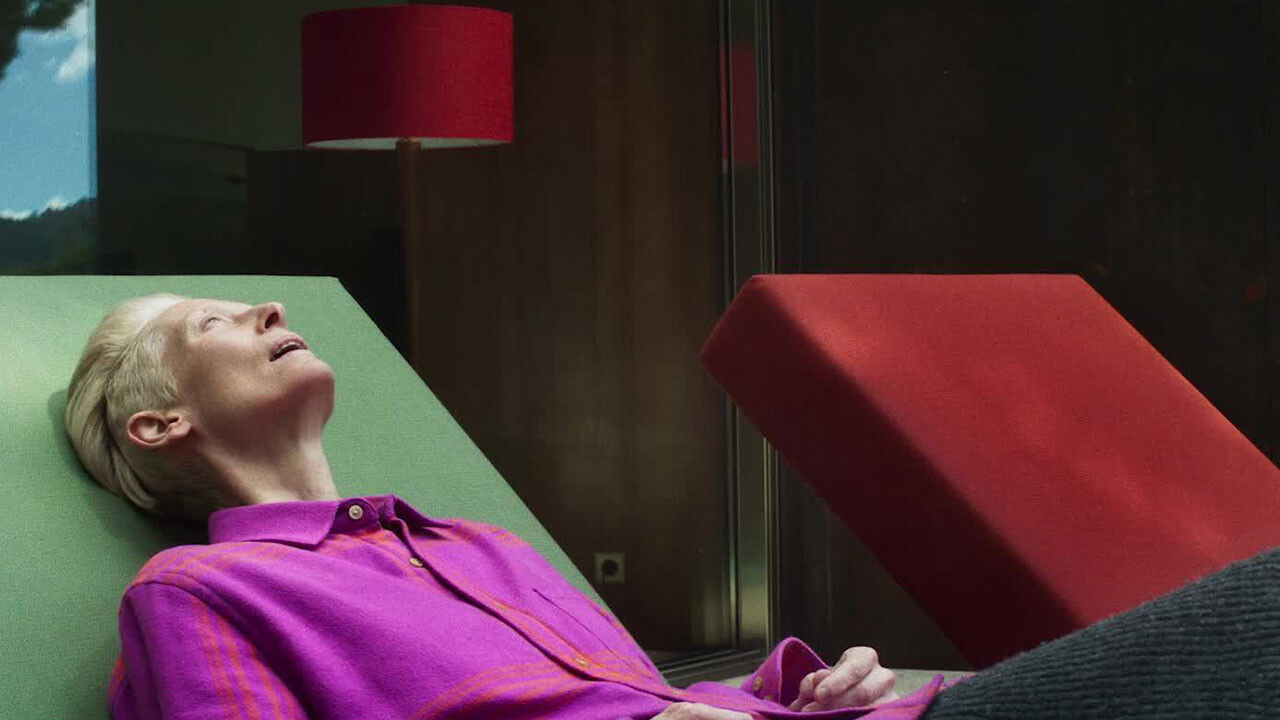The Room Next Door at TIFF 2024 was a peculiar experience. I had never seen director/writer Pedro Almodóvar’s work before, but knew this was his first English-language film and with Julianne Moore and Tilda Swinton on the screen, I was eager to see where the story went. With some heavy subject matter, The Room Next Door was surprisingly light, and although I wasn’t sure at first, I think I quite enjoyed it.
Martha (Tilda Swinton) and Ingrid (Julianne Moore) were friends in their youth, but, as life often does, it led them down different paths. When Ingrid learns that Martha has cancer, she visits her in the hospital, and the two rekindle their close friendship. Martha continues her treatments, but when they seem ineffective, she decides to pursue euthanasia. However, she doesn’t want to go through it alone.
That’s where The Room Next Door comes in. Martha asks Ingrid to accompany her to a vacation home where she can peacefully live out her final days. Reluctantly, Ingrid agrees, and the story that unfolds is beautiful, charming, and at times, quite funny. For example, Ingrid protests, saying she has many closer friends who would be better suited for the job. Martha then reveals that she’s already asked everyone else, and they were horrified at the idea.

Humour like this pops up often throughout The Room Next Door, but the subject matter remains heavy. Almodóvar masterfully balances light and dark by incorporating humour and filling the sets with vibrant colours, nature, and fruit (it’s all anyone eats!). It would have been easy to make everything dark and dreary, but instead, The Room Next Door is a film about death that’s filled with life.
Talking about life and death is always touchy and can often be filled with sorrow, but the quick-paced dialogue created by Almodóvar helps keep things lighter than expected. In the early scenes, where Ingrid and Martha are getting to know each other again, the dialogue feels rushed—almost as if we’re getting the Cliff’s Notes of their lives up to that point. However, once they become “roommates,” the pace slows down and feels much more natural.
“The Room Next Door is filled with gorgeous sets, unique dialogue and will leave you with a new outlook on life.”
The first act of The Room Next Door feels markedly different from the rest of the film. Flashbacks provide backstory on Martha, detailing her teen pregnancy, the father of her daughter, and her time as a war reporter. These flashbacks offer some quirky one-liners to lighten the mood, but they also contain genuine moments that shape who she is. We, along with Ingrid, get to know Martha, as they’ve been apart for so long.
There are parts of The Room Next Door that could have been cut entirely. A subplot involving a man who once dated both women, and is now seeing Ingrid, and another involving the police, don’t add much to the story. These moments aren’t even used to move the plot forward and feel like unnecessary bloat.

Another choice that certainly earns The Room Next Door its quirky or peculiar label is Tilda Swinton playing her own daughter. Earlier in the film, Julianne Moore’s character tells Martha that her daughter looks just like her—“She has your face”—only for her daughter to walk in with her face, literally. It’s a bit eerie, a bit funny, and all around odd.
The story at the base of The Room Next Door isn’t really about dying, its about living, much like We Live in Time, which I saw earlier at TIFF. We learn so much about Martha’s life from important life lessons to many regrets and fears. Though death has been a theme throughout TIFF 2024, many films have chosen to focus on the good rather than the bad and it has been refreshing.
The Room Next Door is filled with gorgeous sets, unique dialogue and will leave you with a new outlook on life. It took some time to grow on me, but the story will surprise you, make you smile and make you cry. With the ability to cover to much ground emotionally, The Room Next Door is worth a watch.
Check out more of CGMagazine’s TIFF 2024 coverage here throughout the festival.





